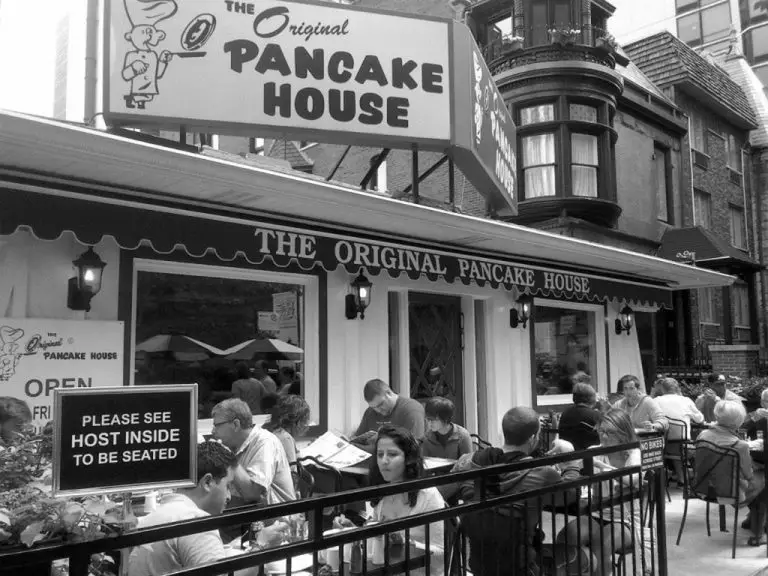Is It Easy To Get A Job In New York?
New York City is often considered one of the top cities for job seekers and career opportunities. With Wall Street, Silicon Alley, Broadway, museums, media outlets, restaurants, and more, NYC offers a diverse range of industries and openings. However, the Big Apple is also notorious for being an extremely competitive job market.
Over 8.8 million people call New York City home, making it the largest metro area in the U.S. This huge population, along with people moving to the city for work, creates a massive pool of candidates applying for open positions. While the opportunities are vast, the number of applicants per job is staggering. Landing a job in NYC takes persistence, networking, preparation, and sometimes a little luck.
The job market provides possibilities across industries, but successfully getting hired can prove challenging. This article will explore whether it’s easy or difficult to find work in the New York City job market.
Economy and Job Growth
The job market in New York City has seen steady growth over the past decade. According to the New York State Department of Labor, private sector jobs in New York City increased by 54,900 in December 2023 compared to the previous year, reaching a total of 4,181,500 jobs. This continues a long-term trend of job growth, with the city adding over 750,000 private sector jobs in the last 10 years.
Some of the fastest growing sectors and industries in New York City include professional and business services, healthcare, retail trade, and leisure and hospitality. Jobs in fields like computer systems design, management consulting, home healthcare, restaurants, and tourism have seen particularly strong growth.
The New York State Department of Labor cites professional and business services as the city’s leading growth sector, adding 19,800 jobs in December 2023 compared to the previous year. Healthcare and social assistance grew by 17,200 jobs during the same period. Retail trade added 7,500 jobs, while the leisure and hospitality sector expanded by 5,400 jobs.
Unemployment Rate
The unemployment rate in New York City was 5.4% as of December 2022, according to the New York State Department of Labor (https://dol.ny.gov/labor-statistics-new-york-city-region). This represents an increase of 0.3% from December 2021. However, the unemployment rate is down from its pandemic peak of 20.4% in June 2020.
Over the last 10 years, the unemployment rate in New York City has fluctuated between a low of 3.4% in October 2018 and a high of 20.4% in June 2020 due to the economic impacts of COVID-19. Prior to the pandemic, the unemployment rate had been steadily declining from a high of 10% in 2010 in the aftermath of the Great Recession. The current unemployment rate remains above the pre-pandemic level of 3.4% in 2018.
The December 2022 unemployment rate of 5.4% for New York City is higher than the national unemployment rate of 3.5% for the same period, according to the Bureau of Labor Statistics (https://www.bls.gov/regions/northeast/data/xg-tables/ro2xglausnyc.htm). This indicates that while the job market is recovering in New York City, it continues to lag behind the nation overall.
Competition for Jobs
The job market in New York City is highly competitive compared to other major US cities. With over 8 million residents, New York has the largest population of any city in America. This results in a huge pool of potential job seekers competing for open positions. According to data from the Bureau of Labor Statistics, the unemployment rate in New York City was 5.4% as of December 2022. While this is higher than the national unemployment rate of 3.5%, it is still lower than other major cities like Los Angeles (4.4%) and Chicago (3.8%).

The competition is especially fierce for high-paying jobs in industries like finance, technology, media, and advertising. Top graduates from prestigious universities flock to New York City in hopes of landing these coveted roles. According to a report by Career Group Companies, there are over 100 applicants for every entry level job opening at top investment banks and consulting firms. The tech sector is also booming in New York, attracting droves of skilled workers. This influx of talent makes it difficult for job seekers to stand out.
While the competition is intense, New York’s large and diverse economy continues to generate new job opportunities across many fields. Ambitious and persistent candidates can find a path to employment with proper preparation and effort.
Available Jobs
New York City has no shortage of available jobs, especially for entry-level and early career roles. According to Indeed.com, there are currently over 29,000 open entry-level positions in New York City across various industries like healthcare, finance, technology, retail, food service, and more. Some of the top entry-level job titles hiring right now include physical therapist, receptionist, customer service representative, sales associate, administrative assistant, software engineer, financial analyst, teacher, nurse, accountant, and many more [1].
LinkedIn also shows over 7,000 open entry-level jobs just within New York City. The most in-demand roles tend to be in areas like customer service, sales, finance, marketing, human resources, information technology, and healthcare. However, there are opportunities in nearly every industry for those just starting their careers [2].
Overall, the job market in New York City is growing with new entry-level job openings daily. Competition may be high for some roles, but the breadth and variety of industries in New York provides openings across many fields, especially for those willing to work hard and gain experience.
Salaries
Salaries in New York City tend to be higher than the national average, but the high cost of living offsets the higher wages. According to ZipRecruiter, the average annual salary in New York is $51,499 as of January 2023, compared to the national average of around $47,000. However, New York was ranked the 7th most expensive state to live in by CNBC’s 2022 Cost of Living index.
Average salaries in New York City vary significantly by industry. According to PayScale, the average salaries for popular roles include:
- Software Engineer – $99,037
- Registered Nurse – $82,975
- Accountant – $62,327
- Marketing Manager – $77,801
- Teacher – $60,558
The median household income in New York City is $67,046 according to Census data. But when adjusted for the city’s high cost of living, the equivalent median household income nationally is just under $50,000.
New Yorkers spend more on housing, groceries, transportation, utilities, and other expenses compared to the average US city. For example, the median rent for a 1-bedroom apartment in NYC is over $2,500 per month, among the highest in the nation.
While salaries may seem high in New York City at first glance, the city’s high cost of living makes it challenging to build wealth. Job seekers should carefully weigh salaries against NYC’s steep costs.
Hiring Requirements
The hiring process for jobs in New York City can vary depending on the employer, industry and specific role. However, there are some general requirements and qualifications that many employers look for.
For entry-level roles or jobs that don’t require specific education or licensing, many employers will hire candidates with a high school diploma or GED and some work experience. Customer service, sales, administrative and support roles often fall into this category. However, some employers may prefer candidates with an associate’s or bachelor’s degree for entry-level office jobs.
According to the NYC Government Jobs website, the city government requires candidates to have a minimum of 60 college credits or an associate’s degree for many entry-level professional roles. For higher level jobs, a bachelor’s degree or higher is typically required.
Outside of the government, most professional roles in fields like finance, marketing, IT, engineering and healthcare require a bachelor’s degree at minimum. For many mid-level to senior roles, employers often prefer or require a master’s degree or other advanced certification or licensing.
Across industries, specialized roles in trades or technical fields like construction, mechanics and manufacturing may require specific vocational training, apprenticeships or industry-recognized certifications rather than formal college degrees.
The job posting and description will always specify the minimum education, experience and licensing required or preferred for the role. Paying close attention to these qualifications can help job seekers determine if they are a good fit before applying.
Networking
Networking is crucial for finding a job in New York City, where many positions are never publicly advertised and instead are filled through personal connections. In a competitive job market like New York, who you know can make all the difference in getting your foot in the door at an organization.
Attending industry events, conferences, meetups, and networking nights are great ways to meet people and make connections within your field. Many professional organizations and Meetup groups host regular events for networking purposes. Speaking with friends, family, mentors, and former colleagues to let them know you are job searching can also help; you never know who they might know. Reaching out directly to people working at companies you are interested in, through a warm email introduction or LinkedIn, is another recommended networking strategy.
The key is being proactive about meeting new people in your industry instead of relying solely on job postings. Networking takes effort and putting yourself out there, but can significantly increase your chances of finding the right job opportunity in New York’s competitive environment.
Job Search Tips
When searching for jobs in New York City, it’s important to use effective strategies and leverage helpful resources to find openings. Here are some tips:
Utilize online job search engines and platforms like Indeed, LinkedIn, Glassdoor, Monster, and company websites. Set up alerts and notifications so you don’t miss new postings.
Network and make connections in your industry. Attend conferences, join professional associations, and reach out to contacts. Personal referrals can help you find unposted jobs.
Customize your resume and cover letters for each application. Research the company and role to tailor your experience and skills. This extra effort makes you stand out.
Follow up after submitting your application. A phone call or email restating interest and qualifications keeps you on the hiring manager’s radar.
Be prepared to move quickly. New York job openings get flooded with applicants, so apply right away and schedule interviews ASAP. Make sure your application materials are ready to go.
Consider working with a recruiter or headhunter to access job opportunities before they are publicly listed. They can advocate for you and provide insider tips.
Conclusion
In summary, the job market in New York City has its ups and downs. The city has a large and diverse economy with job opportunities in many industries. However, with a high population density, competition for jobs can be fierce. Job seekers need to be strategic in their search – identifying growing industries, networking consistently, and highlighting unique skills and experience. While salaries tend to be higher in NYC, the cost of living is quite high as well. It takes persistence, preparation and patience to land a good job. Overall, getting a job in New York City can be challenging but is certainly feasible with the right strategy and effort.
Final thoughts on ease of getting a job in NYC – With proper planning, a strong resume and interview skills, and the ability to adapt to the fast paced environment, a motivated job seeker can absolutely find rewarding employment in New York City. The key is being flexible on role and industry while bringing valuable skills and experience that set you apart from other applicants. While the hiring process may be competitive, it is well worth it in the end for the immense opportunities the city provides in progressive companies, exciting industries, and global business.




